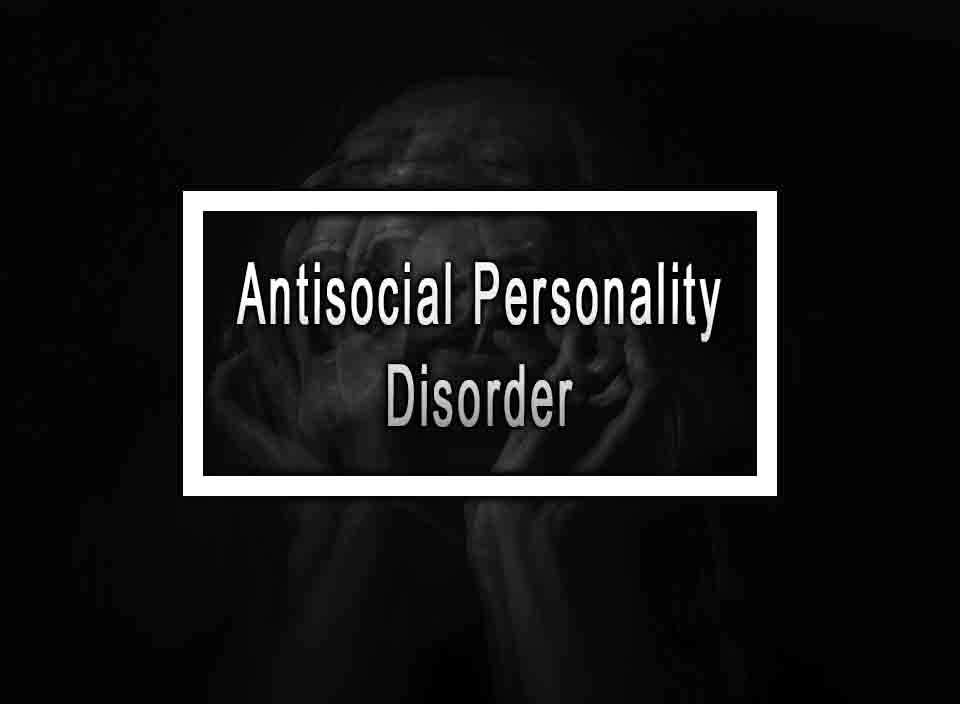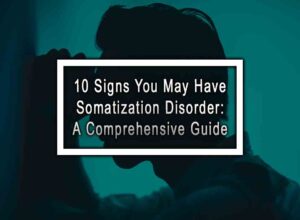Antisocial Personality Disorder (ASPD), commonly referred to as sociopathy or psychopathy, is a mental health condition that affects a person’s ability to form meaningful relationships with others, their sense of morality, and their ability to control their own impulses. It is estimated that 3% of men and 1% of women in the United States have been diagnosed with the disorder. People with Antisocial Personality Disorder are often characterized by their disregard for the law, lack of empathy, and manipulative behavior. This article will delve deeper into the causes and symptoms of Antisocial Personality Disorder and the current treatments available.
Table of Contents
ToggleSymptoms of Antisocial Personality Disorder
A person with Antisocial Personality Disorder may display several symptoms, although not all may be evident at the same time. One of the most common symptoms is a persistent pattern of violating the rights of others, such as lying, stealing, and manipulating others for personal gain. They may also be impulsive and engage in risky behaviors without considering the potential consequences. Additionally, individuals with ASPD may lack empathy and fail to recognize the feelings and emotions of other people.
Diagnosis
Diagnosing Antisocial Personality Disorder (ASPD) is challenging as it requires a clinical assessment by a qualified mental health professional. The diagnosis involves a comprehensive evaluation to determine the presence of symptoms that meet the criteria for ASPD. The evaluation may include psychological tests, interviews with family and friends, and a discussion of the individual’s personal history. The criteria for the diagnosis of ASPD include the presence of conduct disorder in childhood, a pattern of violating the rights of others, and evidence of an inability to conform to society’s norms.
Causes
Several factors contribute to the development of Antisocial Personality Disorder, including both environmental and genetic factors. Child abuse and neglect, poverty, and a lack of parental support are some of the environmental factors that increase the risk of developing the disorder. Genetic factors also play a role in the development of ASPD, although the exact genes involved are not yet fully understood.
Treatment
The treatment of Antisocial Personality Disorder is challenging as there is no specific cure for the disorder. Treatment mainly focuses on managing the symptoms and reducing the risk of harmful behavior. Cognitive-behavioral therapy (CBT) is a commonly used treatment for ASPD. The therapy involves helping the patient identify their negative thought patterns and challenging them to change their behavior. Other types of therapy, such as group therapy and family therapy, can also be beneficial in the treatment of ASPD.
Conclusion
Antisocial Personality Disorder is a severe mental health condition that affects a person’s ability to form healthy relationships, their sense of morality, and their ability to control their impulses. Although it is a challenging disorder to treat, there are treatment options available that can help manage the symptoms and reduce the risk of harmful behavior. As the causes of ASPD are not entirely understood, it is essential that individuals who suspect they may have the disorder seek help from a qualified mental health professional. With support and treatment, there is hope for those living with ASPD to live a fulfilling life.
Antisocial Personality Disorder FAQ
Here are the most common questions about Antisocial Personality Disorder.
Can Antisocial Personality Disorder be Treated?
While there is no cure for ASPD, therapy, and medication can help manage symptoms and improve an individual’s quality of life.
Is Antisocial Personality Disorder the same as psychopathy or sociopathy?
The terms psychopathy and sociopathy are sometimes used interchangeably with ASPD, but there are some subtle differences in their definitions. Psychopathy is typically thought to be a more severe form of ASPD, while sociopathy is sometimes used to describe a pattern of antisocial behavior without the full range of symptoms associated with ASPD.
Can people with Antisocial Personality Disorder feel emotions?
Yes, people with ASPD are capable of feeling emotions, but they may have difficulty expressing or recognizing them.
Are people with Antisocial Personality Disorder more likely to commit crimes?
Individuals with ASPD are at higher risk for criminal behavior and have a higher likelihood of having trouble with the law compared to the general population.
Can Antisocial Personality Disorder be prevented?
Preventing ASPD is difficult, but providing early intervention and support for at-risk individuals can potentially reduce the risk of developing the disorder.
How common is Antisocial Personality Disorder?
Estimates on the prevalence of ASPD vary, but it is believed to affect less than 5% of the general population.
More like this: Narcissistic Personality Disorder












